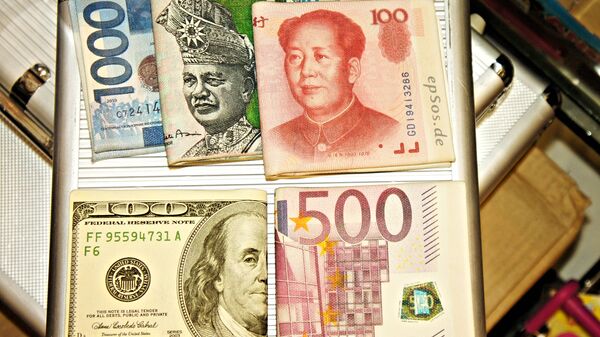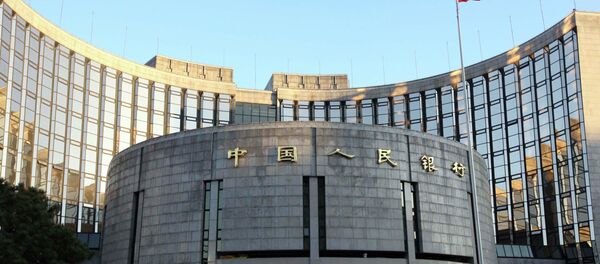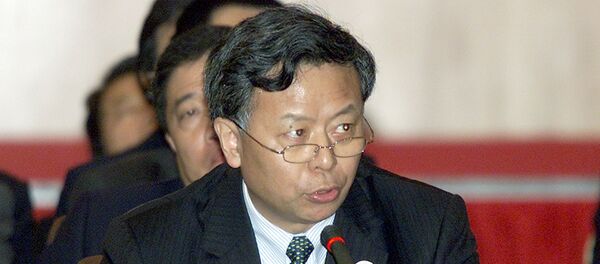While the US remains a safe haven for investment, its preeminence is being challenged by the increasing use of emerging market currencies such as the Chinese yuan for international trade, and central banks' need for more reserve currencies, Yaroslav Lissovolik, Professor of International Economics at Russia's Diplomatic Academy, told Radio Sputnik.
Several emerging markets — including China, Brazil, Russia and Taiwan — have recently been selling US treasury bonds at the fastest pace since 1978.
"The role of gold may further expand, partly because there will be demand from the central banks for gold to store reserves, and generally the picture we're seeing today is still that of excess demand, high demand on the part of the central banks for more reserve currencies," said Lissovolik.
Low interest rates in the US also give central banks reason to diversify into emerging market currencies, in order to seek higher yields and high return.
"In order for that trend to continue you need more emerging markets like China, like for example Brazil, Russia, to stabilize their economies, raise their share in the world economy in terms of financial transactions, and then there's more scope for the central banks of the world to use their currency, as reserve currency."
In addition, the Asian Infrastructure Investment Bank will also increase the share of emerging markets in financial transactions and the world's investments, by conducting investment for infrastructure projects.
"This competition between currencies is partly predicated on the share of the country's trade in the world economy, its share of investment, and its share in financial markets, and clearly if you don't take just the past several months, if you take the past five to ten years, clearly China has grown tremendously in terms of its weight in the world economy, and its role in the world as well."



